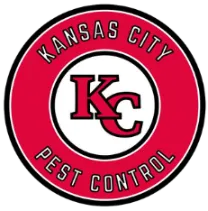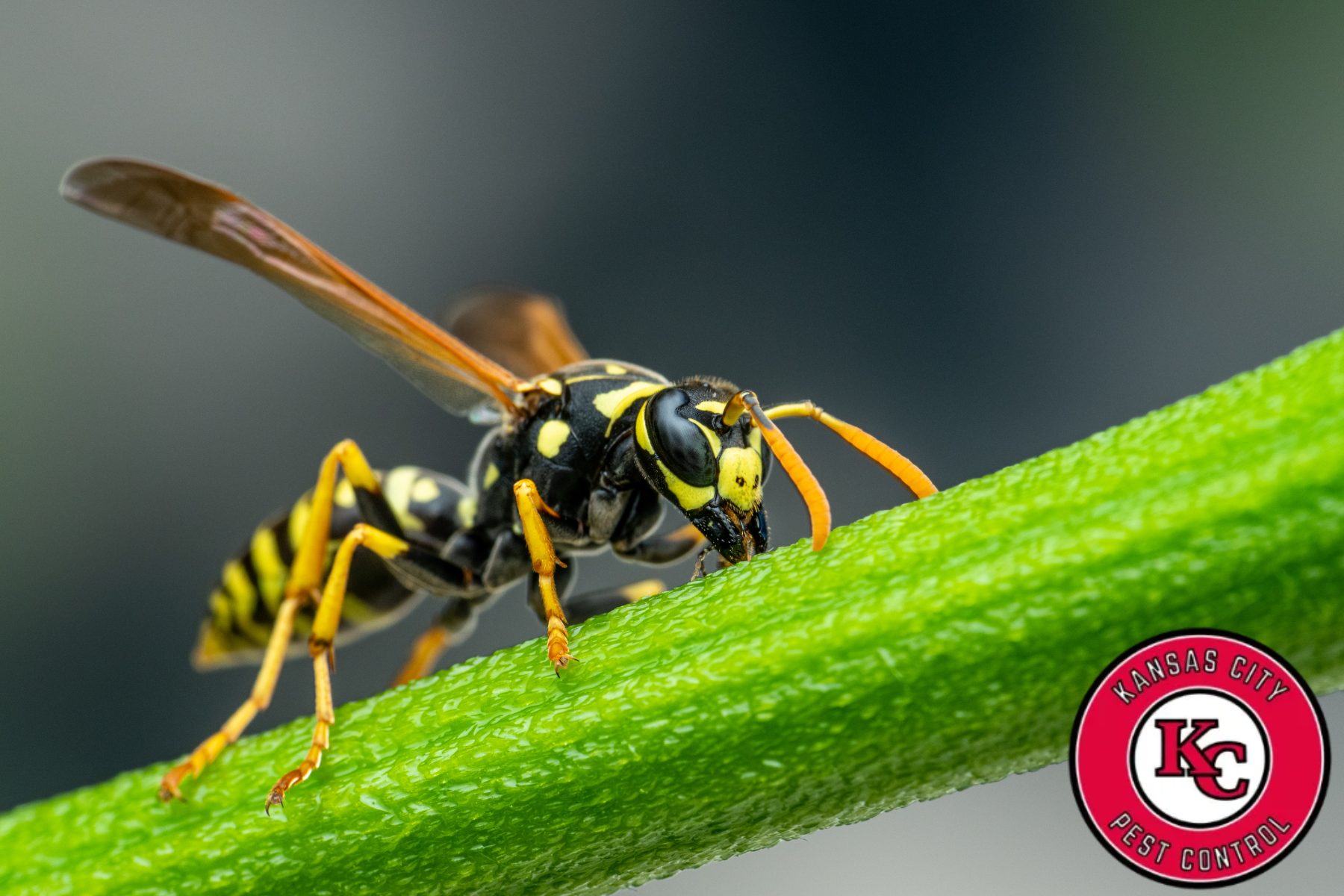If you’ve recently had a wasp nest removed from your Liberty home, you might be wondering, “Do wasps come back after nest is gone?” After all, the last thing you want is to deal with another infestation under the siding or in your attic as the colder months approach. Fortunately, there are several steps homeowners can take to ensure wasps stay away. Whether you need to seal up entry points or manage natural habitats near your home, this guide will help you enjoy a wasp-free yard.
Steps to Take After Wasp Nest Removal in Your Liberty Home
Ensure Proper Nest Removal
The first and most important step in preventing wasps from returning is to ensure the nest is properly removed. A professional exterminator, such as Spencer from Liberty Pest Solutions, will not only remove the nest but also conduct a thorough inspection of the property to identify any additional nests. As Bounme Bledsoe shared, Spencer’s attention to detail helped eliminate several nests around their home during a perimeter walk-through. His thorough approach reassured them that their concerns were addressed.
A well-trained pest control Liberty team will treat any remaining wasp activity and ensure there’s no chance for wasps to rebuild nearby. It’s essential to rely on a professional to handle the situation thoroughly, especially if the nest is in a hard-to-reach area, such as the attic or under the eaves.
Do Wasps Come Back After a Nest Is Gone?
Yes, wasps can return after a nest is gone, especially if the nest is not completely removed or there are nearby areas that attract wasps. Wasps are territorial, and once one nest is destroyed, new wasps may try to build their own nest in the same area, drawn by the scent left behind from the previous nest. Therefore, it’s important not only to remove the nest but also to seal off entry points and treat the area to prevent re-infestation.
Inspect Your Home for Entry Points
Even after the nest is gone, wasps can still return if entry points to your home aren’t sealed properly. Wasps are notorious for finding gaps in your siding, cracks around windows, and small holes near your attic or eaves. After removal, be sure to inspect these areas and seal them with caulk, weatherstripping, or mesh screens to prevent future leaks. Sealing these potential entry points will help prevent wasps from coming back later this fall.
If you’re unsure where the problem areas might be, a Liberty pest control expert can help you spot vulnerabilities and seal them properly to prevent future infestations.
Apply Wasp Repellent Around Key Areas
Once the nest is removed and the entry points are sealed, consider applying a wasp repellent around key areas of your home. Natural repellents, such as peppermint oil, can deter wasps from rebuilding. If you prefer a store-bought solution, there are numerous wasp control near me sprays available that are effective in keeping these insects at bay. Make sure to focus on areas where wasps are most likely to return, like near eaves, attic vents, and other sheltered spots.
How to Prevent Wasps From Coming From the Natural Habitat Into Your Yard
If your Liberty home is near natural habitats, such as bushes or a hollow tree, you may need to take proactive steps to keep wasps out of your yard.
Managing Bushes and Trees Near Your Patio
Bushes and trees can attract wasps, especially if they bear fruit or flowers. Overgrown shrubs, decaying plants, and fallen fruit are all potential drawcards for wasps. Regularly trim bushes, remove dead plants, and dispose of any fallen fruit. By maintaining a tidy yard, you can reduce the likelihood of wasps establishing a nest in your outdoor space.
Dealing With the Hollow Tree Near Your Patio
Hollow trees are a prime nesting spot for wasps, so if you have one near your patio, consider sealing it up. If removal is not possible, consult a pest control Liberty MO expert to inspect and treat the tree. Sealing the hole or treating the tree to deter nests will reduce the likelihood of wasps nesting there.
Creating a Wasps-Free Zone Around Your Patio
To prevent wasps from taking up residence around your patio, consider using wasp traps or hanging decoy nests. Wasps are territorial creatures, and the presence of a fake nest can deter them from settling in the area. Additionally, you can plant wasp-repelling herbs, such as mint or citronella, around your patio area to create a natural barrier.
Why Do I Keep Finding Paper-Wasp Nests Under the Eaves of My Older Liberty Home?
Even after sealing cracks, you may still find wasp nests under your eaves or in other hard-to-reach spots. Here’s why:
Sealing Cracks Isn’t Enough – Check for Hidden Gaps
While sealing cracks in the siding is essential, older homes, especially those in Liberty, may have hidden gaps that you may have overlooked. The eaves, vents, and attic spaces are notorious for harboring wasps, so it’s crucial to perform a thorough inspection. If you’re unsure where these gaps are, consulting an exterminator in Liberty can ensure no cracks are missed.
Wasps Can Build New Nests in Hard-to-Reach Places
Wasps are very crafty and will find hard-to-reach places to build nests, such as inside walls or under the eaves. This is why a simple crack-sealing job may not be enough to prevent them. In these cases, applying insecticidal dust or calling a pest control in Liberty to treat these hidden areas is recommended.
Monitor the Area Regularly and Take Action Early
Fall is a prime time for wasps to search for sheltered spaces to build their nests. Regularly monitoring your eaves and attic for new activity will allow you to catch potential issues early. If you spot signs of a new nest, contact a local pest control company immediately to remove it before it becomes a larger problem.
Long-Term Strategies to Keep Wasps From Returning to Your Liberty Home
To ensure long-term protection against wasps, there are a few more strategies you can implement:
Routine Maintenance and Inspections
Regular inspections of your home’s exterior are essential, especially after wasp removal. A pest control expert can inspect vulnerable areas, such as your eaves or attic, and ensure they’re properly sealed. By scheduling yearly inspections, you can stay ahead of any potential infestations.
Proper Waste Management and Trash Storage
Wasps are attracted to food and sugary substances, so it’s important to store trash properly. Keep garbage bins sealed tightly and place them away from entry points. Compost bins should also be sealed to prevent attracting wasps with food scraps.
Using Wasp-Repelling Landscaping Techniques
Certain plants, like marigolds, eucalyptus, and citronella, are known to repel wasps. Incorporating these plants around your home, especially near windows and doors, can help keep wasps away. You might also want to use mesh netting to protect vulnerable spots, or even hang a decoy nest to deter wasps from nesting nearby.
Conclusion
Keeping wasps from coming back after a nest removal is possible with the right steps. From proper nest removal and sealing entry points to managing your yard and natural habitats, there are several ways you can protect your Liberty home from future infestations. If you’re looking for expert wasp control, Kansas City Pest Control is here to help ensure your home remains wasp-free.
A real-life example of the effectiveness of proper wasp control comes from a satisfied homeowner, Bounme Bledsoe, “Spencer is professional and thorough. He knocked down the wasp nest that we were concerned about and found a couple more as he did a perimeter walk through and took care of those as well. He explained every process in detail and was diligent in all respects. Thank you so much for taking away our worries and helping us enjoy our yard.”
Ready to take action? Contact us today for expert wasp control. Our team is ready to help you safeguard your home and enjoy a wasp-free yard this fall.

FAQ: People Also Ask
- Do wasps come back after the nest is gone?
Yes, wasps can return to the same location if the nest isn’t fully removed or if environmental factors attract them. It’s essential to seal entry points and treat the area to prevent new nests from forming. - How can I keep wasps from coming back to my Liberty home?
After nest removal, seal all entry points, apply wasp repellents, maintain your yard, and monitor for any new activity regularly to ensure wasps don’t return. - What attracts wasps to my Liberty home?
Wasps are attracted to sugary foods, garbage, fruit trees, and sheltered spots like your eaves. Proper waste management and yard upkeep can help deter them from settling near your home.

